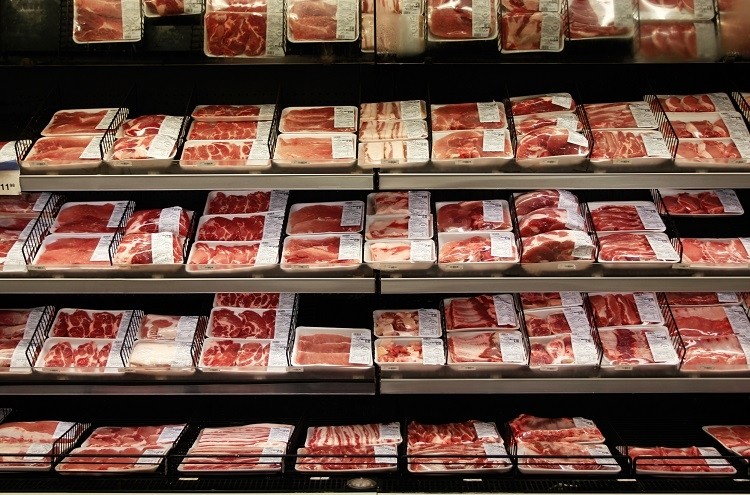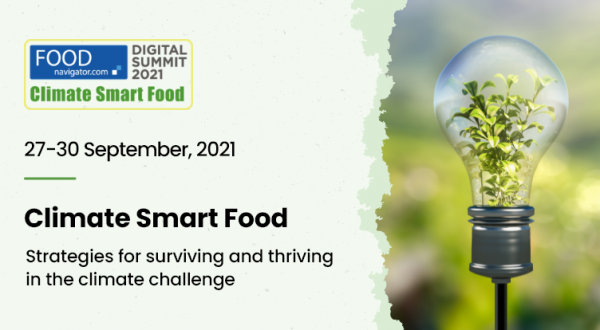Do consumers have an appetite for change? IGD shines spotlight on healthy and sustainable diets

Acknowledging that unhealthy diets are the leading cause of ill health worldwide, the UK government developed dietary guidelines to help consumers achieve a ‘healthy, balanced’ diet.
However, according to fresh research from commercial insight and social impact organisation IGD, the population is not taking heed.
“The sad reality is that we’re a really long way from meeting this guidance,” said Hannah Skeggs, Nutrition & Scientific Affairs Manager, at FoodNavigator’s Climate Smart Food event.
“Only around 1% currently follows a diet that reflects these government recommendations. So there is a lot of work to do.”
At the same time, IGD research indicates there is a ‘really significant’ appetite from consumers to be both healthier and more sustainable, which Skeggs explained has been sustained over the past three years.
Challenges and opportunities
According to IGD’s latest findings – the result of a survey of 1,500 consumers in the UK – 58% of shoppers are willing to change their eating habits to be healthier and more sustainable.
Unfortunately, cost continues to remain a ‘huge barrier’ to change, she explained. “Thirty-seven percent told us they perceive healthy, sustainable eating to be more expensive. This has reduced from 41% in November 2019 and remains consistent with 38% in July 2020.”
To exasperate this concern, consumers in the UK are exiting lockdown, which comes with an increase in commuting costs and socialising, amongst other expenses. “Some are really starting to feel the pinch, so this may become more important,” said Skeggs.
IGD’s findings also revealed a potential opportunity for increased behavioural change. While still ‘really small’ at just 16%, the Nutrition & Scientific Affairs Manager noted there had been a significant increase (up from 13% in July 2020) in consumers claiming the environment is their biggest motivator for change.
“This suggests that for some, the importance of sustainability has increased and they may be more open to concepts like environmental labelling, on-pack claims, or certification, for example B-Corp, on-pack.”
Meat, whole grains, fruit and veg in focus
By conducting consumer surveys in 2019, 2020, and now 2021, IGD was particularly keen on understanding the extent to which diets had changed – if at all.
“I’m really pleased to say that yes, behaviour has changed,” Skeggs told delegates at the event.
Concerning government recommendations to ‘eat less red and processed meat, like bacon, ham and sausages’, consumers aged 18-25 and 55+ have changed their diet for the better. These age groups are now eating meat significantly less frequently than in both 2019 and 2020.
Further, whereas frequency in reduction was most significant in higher socioeconomic groups, now they’re more aligned with people in lower socioeconomic groups, “meaning that meat consumption is more consistent across the board”.
Overall, changes in meat consumption behaviour have been maintained this year, indicating that long-term behaviour change has taken place, with IGD expecting this trend to continue going forward.

Looking beyond meat, the commercial insight firm observed more ‘very positive behaviours’ emerging out of the pandemic.
“Fifty-seven percent of people tell us that they’re increasing or thinking of increasing their consumption of whole grain foods,” we were told. “Fifty-two percent have already increased the amount that they cook from scratch, and 77% have increased, or are thinking about increasing, their fruit and veg intake. Which is huge.”
In addition, 67% have reduced, or are considering reducing consumption of high sugar products.
Why are consumers changing their diets?
According to IGD’s research, for the majority of consumers in the UK personal health is the main motivator behind diet change.
In 2021, for example, around 40% are motivated primarily by their personal health and an additional 20% are primarily promoted by their family health. “So when we bring these groups together, what this actually means is a whopping six in 10 people listed health as their primary driver for change.”
However, environmental concerns are making a comeback. “Following a decline in lockdown, there has been a significant increase in those claiming the environment is their biggest motivator,” Skeggs revealed.
“This highlights an audience is returning with sustainability high on their agendas. But I must admit, it’s nothing like you see from the drive from health.”
As previously mentioned, primary barriers to changing consumption behaviour include cost. However, secondary barriers are also playing a role.
“Secondary barriers are quite interesting, but they’re much lower than cost. They include lack of familiarity, lack of convenience, and people associating a healthy and sustainable diet with poorer taste.
“Interestingly, lack of choice is significantly less of a barrier this year than it was in previous years, and that highlights…industry action to innovation in the space of healthy and sustainable food and beverage products.
“It shows we are really making changes and taking a step forward.”
At the Climate Smart Food event, IGD also examined the opportunities that exist to promote healthy and sustainable diets. Read the article here.



























